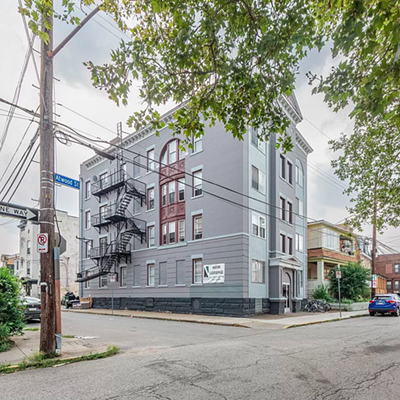Facing a million-dollar deficit next year, the Carnegie Library system is poised to shutter four of its branches. Naturally, people are looking for someone to throw the book at: Mayor Luke Ravenstahl? Inept library administrators?
But this story was really written a decade ago -- yet another chapter in the bursting of America's post-industrial bubble.
Pittsburgh avoided the worst of the dot-com and real-estate manias. But now we're paying the price for our own sports-mania ... and the highly speculative investments we made to feed it.
In the late 1990s, the Steelers and Pirates were demanding new playgrounds to replace Three Rivers Stadium. To pay for it, then-Mayor Tom Murphy and other leaders had an idea: finance new stadiums, and an expanded convention center, with money from the countywide 1 percent sales tax. The Regional Asset District tax was already paying out $10 million a year for sports facilities, after all.
Some of us thought that was a bad idea. The RAD also supports parks, art groups and libraries: What would happen if sales-tax revenue dried up in a recession? Weren't library books more important than luxury boxes?
The debate is captured in the 2003 book Public Dollars, Private Stadiums. (The book's cover, ironically, features a banner that reads "Stadium? Thanks, I got one. I could use a library.") The Pittsburgh Post-Gazette championed the stadium subsidies almost every week. Business leaders insisted that sports teams were good PR. And as authors Kevin J. Delaney and Rick Eckstein recount, "Supporters insisted that the [stadium financing] would not divert money from other regional assets because the RAD pool had been growing steadily. [So] there would be money for everything."
That kind of thinking got Enron into trouble. But it worked at the time, despite a lack of public support for the scheme.
Today, RAD spends $13.4 million a year on the two new stadiums and convention center -- about one-third more than it spent during the days of Three Rivers. That's still less than the $17.6 million the Carnegie libraries receive. But the stadium-funding increase alone could cover the Carnegie's deficit more than three times over. And while funding for smaller arts groups has been cut, the RAD money will be paying off stadium construction bonds for another couple decades.
Civic leaders have responded with a shrug. The Post-Gazette editorial page, for example, blithely asserts, "It is unlikely that voters will encourage lawmakers to raise taxes ... for libraries." As if that mattered when sports teams were on the line.
As civic leaders point out, Pittsburgh's population is much smaller than it was when the libraries were built, and the libraries being closed have lots of empty chairs. But in the Three Rivers era, I saw plenty of empty chairs during Pirates games, too. Back then, though, a lack of attendance was a reason to invest more money in the team.
Like the hedge-fund CEO who spent millions on a private jet, our priorities went awry during the boom years. We spent money on bread and circuses -- and the circuses catered to the guys with bread.
As Public Dollars notes, cities like Pittsburgh "are filled with hollow corporations: companies that split their administration from their production." (Think of Alcoa, for example, whose nearest production facilities are in Ohio.) Lost working-class jobs aren't replaced, or are replaced with service-sector jobs that pay less. And so working-class neighborhoods struggle. We offer the kids a "Pittsburgh Promise" college scholarship program with one hand, and close libraries with the other. Meanwhile, civic leaders can barely locate the West End library on a map, let alone find motivation to save it: Public Dollars argues that their "urban priorities include good roads or commuter rails, decent restaurants, and cultural diversions."
Our investment in sports facilities, actually, reflects a much broader transition -- one whose downside is often ignored. Pittsburgh's celebrated economic "turnaround" isn't just about the knowledge workers we now attract. It's about the blue-collar workers we gave up on.
Yes, the stadiums are nice. Yes, the new convention center was essential to lure events like the G-20 -- and RAD funding was essential to get the convention center built. But there's a cost to those glittering developments, and Pittsburgh's struggling neighborhoods are the ones paying it. Even to sports fans, that should seem deeply unfair.
Public Dollars, Private Stadiums is a pretty good book, by the way. It's available at four Carnegie Library branches. At least for now.














